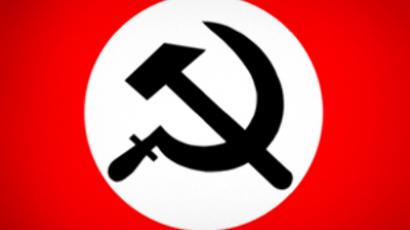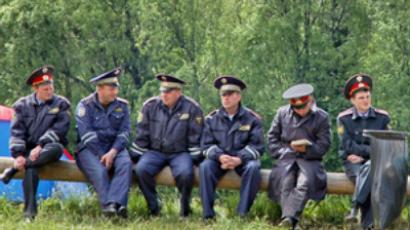Top Russian court considering capital punishment return
The moratorium on the death penalty in Russia, which has been in force for 13 years, should stay in place.
That's according to representatives of the Kremlin and Parliament, who were meeting at the country's Constitutional Court, which was considering whether the death penalty should be reintroduced in Russia on January 1, 2010.
Valery Zorkin, Chairman of the Constitutional Court, announced that the decision would be taken at a closed meeting. According to the Court’s press service, the decision is due to come before the New Year.
It is currently suspended by a moratorium, but may come back into force due to the latest changes in the country's court system.The moratorium was introduced in 1999 following Russia’s signing in 1997 of the European Convention on Human Rights, which was a condition of its joining the Council of Europe. Under Protocol 6 of the document, states commit to abolishing the death penalty except in times of war or the imminent threat of war.
Russia remains the only one of the 47 members of the Council of Europe not to have ratified the protocol.
The 1999 Constitutional Court ruling stipulates that no court can sentence criminals to death until jury trials are implemented in all courts, in order to guarantee equal rights to suspected criminals all across the country.
Jury trials have now been established all across Russia except in Chechnya. It will become the last Russian republics to institute jury trials on January 1, 2010. The delay is related to the peculiarities of the Russian legal system under which juries are appointed by municipal authorities. But local elections in these republics only became possible this year due to the cancellation of the condition of anti-terrorist operations.
The issue has sparked debate in society.
Some put forward rational reasons:
“The implementation of the death penalty in Russia is out of the question for me. It has absolutely no influence on the criminal environment in any country, while the numbers of judicial errors are quite high,” believes State Duma deputy Stepan Krashennikov.
While others are more inclined to appeal to emotions:
“Everyone who's against capital punishment has to go through losing loved ones to understand,” says State Duma Deputy Chairman Lyubov Sliska. “I was astonished by the cynicism with which the serial killer Pichuzhkin acted during his court hearings. It turned out he was a chess player with sadistic ideas. I think that, for people like him, whose guilt has been proved, the death penalty should be inevitable.”
Human rights groups say the death penalty is simply barbaric and is unacceptable in a civilized society.
“The death penalty takes lives. It's not we who give life to humans. That's why the death penalty should not be a human deed. It's pagan, it's beastly. Capital punishment should be excluded from the range of human punishments,” believes Human Rights Commissioner Vladimir Lukin.














